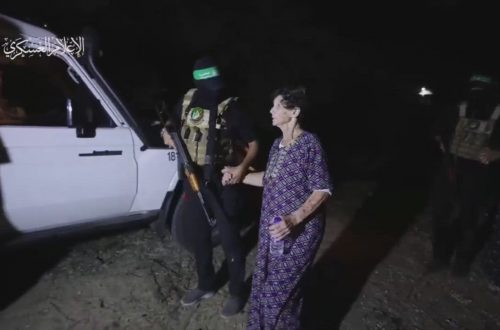This is an ICSR Insight written by Research Fellow, Alexander Meleagrou-Hitchens
On the ten year anniversary of 9/11 earlier this month ICSR published an authoritative report on Anwar al-Awlaki, As American as Apple Pie: How Anwar al-Awlaki became the Face of Western Jihad.
The demise of Anwar al-Awlaki, if reports of his death are accurate, represents a significant milestone in the fight against al-Qaeda. Despite his involvement with a number of both successful and abortive terrorist attacks against the West, it is Awlaki’s ability to project Salafi-jihadi ideology and mobilise Western Muslims through his sermons that has constituted his most potent threat.
Awlaki’s corpus of work (much of it widely disseminated on the internet) may therefore remain a key tactical asset in the jihadist movement’s strategy of radicalising and recruiting Western Muslims. Indeed, although he does not have the stature of some of his predecessors, it is worth noting that the works of jihadist thinkers such as Sayyid Qutb and Abdullah Azzam remain very relevant to modern jihadists.
Background
Awlaki is the latest in a long line of English-speaking Salafi ideologues. He emerged from a milieu which included a number of other like-minded individuals, based primarily in Britain and America in the late 1980s and early 1990s. These include well known figures such as the American Salafis Ali al-Timimi, London-based Salafi-jihadi clerics Abu Hamza and the founder of al-Muhajiroun, Omar Bakri Mohammed. Together they introduced Salafi, Islamist, and in some cases Salafi-jihadi thought to an audience of Western Muslims who were seeking new and culturally transcendent expressions of their religion which could offer them solutions to contemporary issues.
Awlaki represents the most effective and refined version of this English-speaking Salafi-jihadi trend, moulding his message to the West’s political and social culture. However, unlike his forebears, Awlaki was also considered a leading moderate and critic of al-Qaeda, having cultivated this image in the years before, and immediately after, 9/11.
The story of Anwar al-Awlaki, and in particular his intellectual progression to jihad, reveals a unique trajectory of jihadism in the West. This movement is not just confined to Muslim majority countries, and through arguments he and others have provided, its message now resonates with a small section of Western Muslims. The movement has achieved this level of resonance through a process which includes the appropriation of contemporary Western political discourse about human rights, injustice and foreign policy, interwoven with the history of Islam and the fostering a of global Islamic consciousness which demands violent action in order to survive and expand.
Significance of Awlaki’s Death
It is too soon to tell what effect Awlaki’s reported death will have on the global jihad movement. As it becomes an increasingly decentralised network, the movement has relied less upon charismatic leaders than it once did.
Awlaki’s influence has always been limited among jihadist actors in primary theatres of conflict – the Middle East and South Asia. The real significance of his death will be felt among his substantial following in the West for whom he convincingly argued about the necessity of jihad. However, Awlaki himself acknowledged that the global jihad movement does not rest on one person, and his goal was to help build a movement which can absorb the loss of its leading figures.
Almost all of Awlaki’s work is readily available on the internet, including mainstream sites such as Youtube, and this will likely remain the case for some time to come. As such, his followers and potential future recruits will continue referring to his works for inspiration.
Awlaki also provided the global jihad movement with an ability to react rapidly to geopolitical events through jihadist media platforms providing his followers – particularly in the West – with a constant source of ‘the al-Qaeda narrative’. With Awlaki’s death the movement will have lost a useful asset in their ongoing effort to ensure their narrative wins out.
Pretenders to the Throne?
Awlaki’s role in al-Qaeda and, more generally, within the global jihad movement was principally as an ideological cheerleader. He was not an operational commander in the way that Osama bin Laden or Atiyah Adbul-Rahman were, and will not therefore require direct replacement.
Few English speaking preachers have the same background and following that Awlaki enjoyed over the last decade, and it is therefore unlikely that a comparable replacement will emerge.
Awlaki’s connections to terrorist attacks
Awlaki’s influence (both direct and indirect) extends to a vast number of individuals around the world. A full list of all those connected to him can be found in the appendix of the As American as Apple Pie report. Please refer to pages 83-90 for a complete list.


